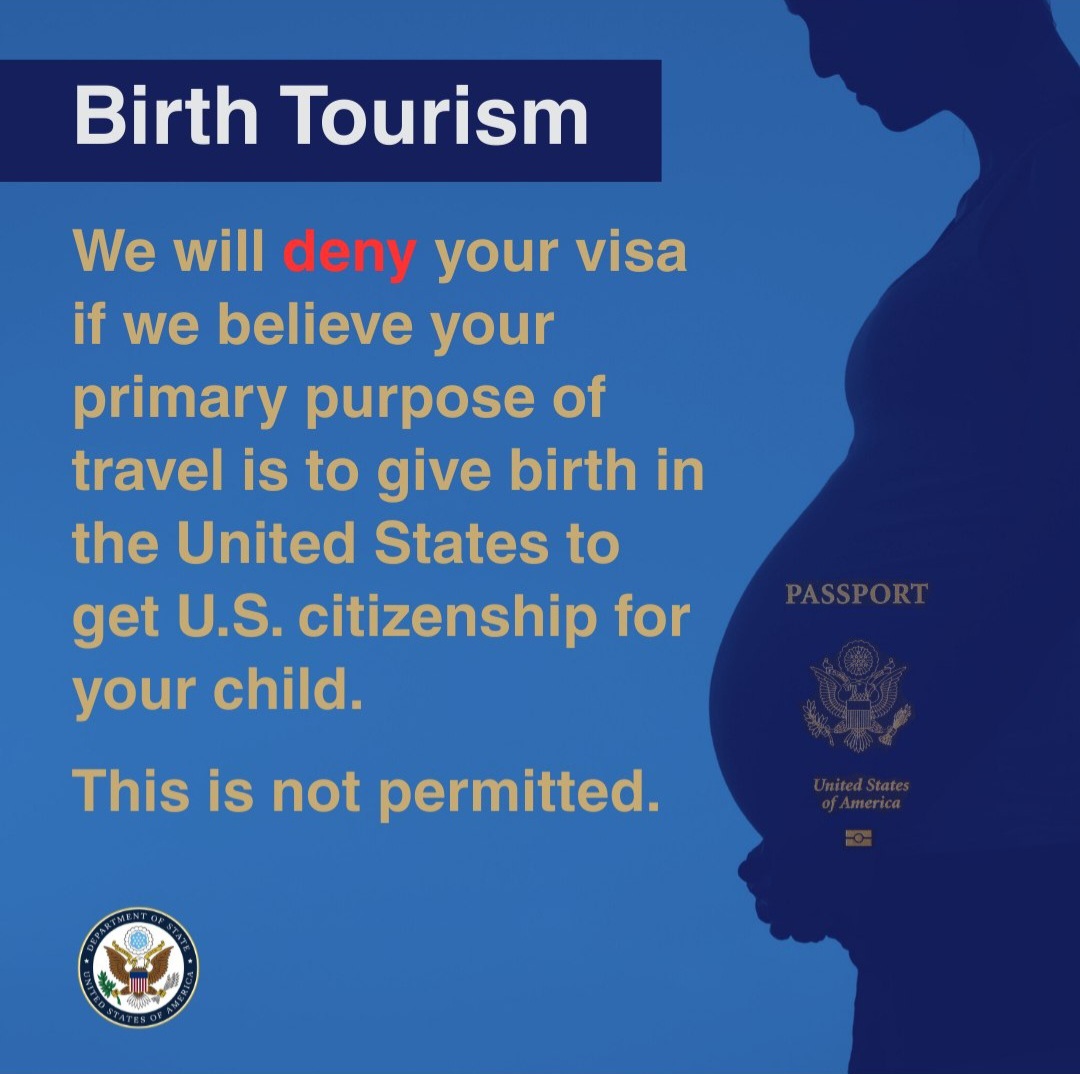In a move that stirred global debate, the United States government introduced new visa rules aimed at curbing birth tourism—the practice of foreign nationals, primarily pregnant women, traveling to the U.S. with the intent of giving birth so their child automatically becomes a U.S. citizen.
Implemented under a 2020 policy revision by the U.S. State Department, consular officers can now deny B-1/B-2 (tourist) visas to applicants they suspect are traveling for the “primary purpose” of obtaining U.S. citizenship for a future child. Though the policy emerged under the Trump administration, the issue remains relevant today amid broader discussions about immigration, citizenship, and national identity.
What Is Birth Tourism?
Birth tourism is a global phenomenon where expectant mothers travel to countries with jus soli (birthright citizenship) laws—most notably the U.S.—to ensure their babies receive citizenship at birth. For many families, this is seen as an investment in the child’s future, providing access to education, healthcare, and freedom of movement.
In the U.S., the 14th Amendment guarantees citizenship to “all persons born or naturalized in the United States,” regardless of the parents’ nationality or immigration status. This has long been a point of contention among those who argue it creates a loophole for foreigners to exploit the system.
Why the Ban?
U.S. authorities argue that birth tourism undermines immigration integrity and burdens public resources. They point to hundreds of cases where foreign nationals paid tens of thousands of dollars to agencies that specialize in orchestrating birth tourism—complete with hospitals, housing, and legal navigation.
In a statement, the White House said the change was necessary to “protect U.S. taxpayers from subsidizing the direct and indirect costs associated with birth tourism,” and to prevent national security risks posed by fraudulent visa use.
According to a 2019 report by the Center for Immigration Studies, about 33,000 births in the U.S. per year were to women on temporary tourist visas—many of whom may have traveled specifically to give birth. While not illegal in itself, lying to obtain a visa or misrepresenting intent to immigration authorities is considered fraud.
Implementation and Challenges
Under the new rules, consular officers are required to determine whether a visa applicant is likely to give birth in the U.S. If pregnancy is visible or disclosed, the applicant must prove a medical necessity—such as high-risk conditions requiring U.S.-based treatment—and demonstrate the financial ability to pay for care without burdening public funds.
Critics argue the policy is discriminatory and subjective, placing undue power in the hands of visa officers to assess intent. They fear it could lead to profiling of women based on nationality, appearance, or perceived fertility age.
Immigration rights advocates also note that the rule does not apply to visa waivers or other travel categories, potentially creating loopholes and uneven enforcement.
A Global and Ethical Debate
The U.S. is not alone in addressing birth tourism. Countries like Australia, Canada, and the United Kingdom have also debated or enacted measures to curb the practice. While each nation handles citizenship differently, the ethical question remains: Should birthright citizenship be unconditional?
Proponents of reform argue that citizenship should be tied to genuine national ties—such as a parent’s legal status or residency. Others caution that eliminating or restricting birthright citizenship would erode a fundamental democratic principle and risk creating stateless or second-class children.
A Message to Global Citizens
For many around the world, American citizenship is seen as a life-changing opportunity. However, attempting to obtain it through dishonest means—such as concealing pregnancy or misrepresenting travel intent—violates both immigration law and moral accountability.
As visa scrutiny increases, would-be travelers are encouraged to seek legal pathways, respect the rules of host nations, and recognize that citizenship—anywhere—is not just a right, but a responsibility.
Conclusion
The U.S. clampdown on birth tourism is part of a larger shift toward tightening immigration controls and redefining what it means to belong. As policies evolve, so too must the conversation—balancing national interest with global fairness, security with compassion, and law with humanity.











